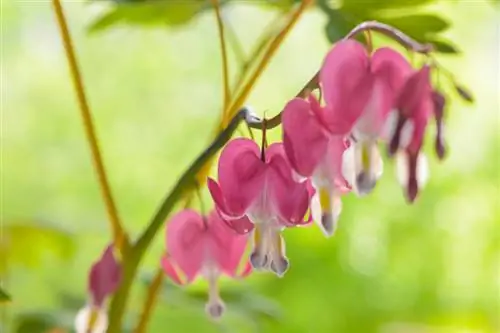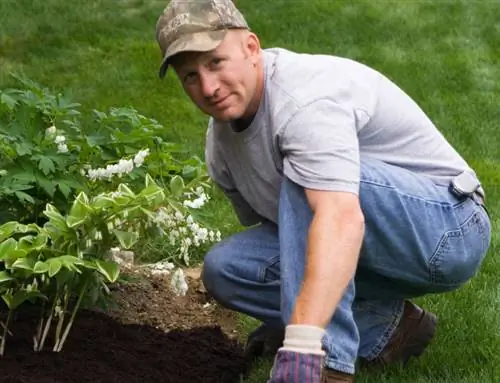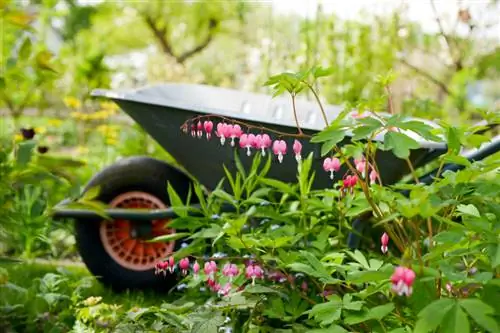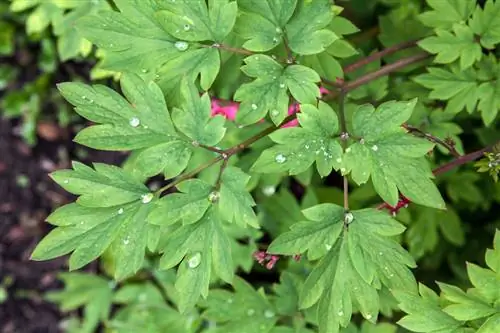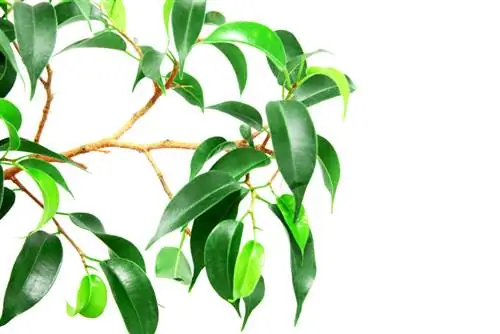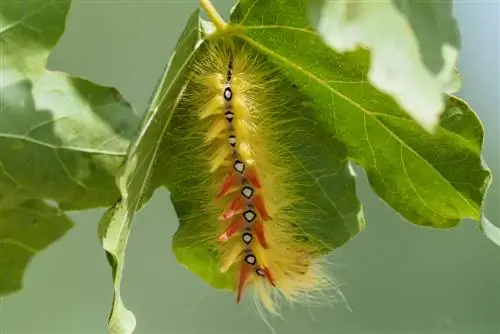- Author admin leonars@hobbygardeners.com.
- Public 2023-12-16 16:46.
- Last modified 2025-01-23 11:20.
The bleeding heart, a very popular ornamental plant due to its striking flowers, belongs to the poppy family (Papaveraceae) and, like many of its relatives, is poisonous. Small children and pets are particularly at risk because they want to snack on the pretty plant out of sheer curiosity. However, fatal poisonings are usually not to be expected.
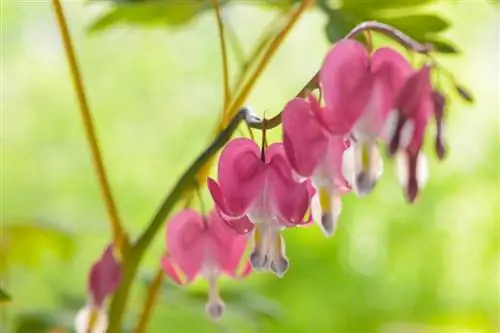
Is the Bleeding Heart poisonous and how dangerous is it?
The bleeding heart is a poisonous ornamental plant from the poppy family. All parts of the plant are poisonous, especially the roots. Symptoms of poisoning can include burning in the mouth, gastrointestinal complaints, paralysis or circulatory failure. In case of contact, be sure to contact the poison control center.
All parts of the plant are poisonous
Basically all parts of the Bleeding Heart are poisonous, with the highly poisonous ones mainly found underground. The roots in particular contain various alkaloids, of which the isoquinoline alkaloid protopine is particularly effective as a toxicant. The same substance also occurs in other poppy plants, some of which are highly toxic, such as celandine (Chelidonium majus), the California poppy (Eschscholzia californica) or the white feather poppy (Macleaya cordata). The bleeding heart has no traditional use in medicine.
Symptoms of poisoning
Depending on which parts of the plant were eaten and in what quantities, milder symptoms of poisoning such as a burning sensation in the mouth and stomach and intestinal problems are to be expected. The latter can also be accompanied by vomiting and diarrhea. If the poisoning is more severe, symptoms of paralysis are possible. Fatal poisoning due to circulatory failure cannot be ruled out.
What to do if you are poisoned?
If you or your child have accidentally eaten or swallowed parts of the Bleeding Heart (or another poisonous plant), the best thing to do is as follows:
- Be sure to remain calm.
- Remove possible plant residues from the mouth.
- Do not induce vomiting!
- It is better to drink still water or tea instead of milk.
- Call the poison control center or go to the nearest hospital.
Tip
You should also wear gloves when working in the garden with a bleeding heart (e.g. cutting), especially if you have sensitive skin and are prone to contact eczema anyway.

